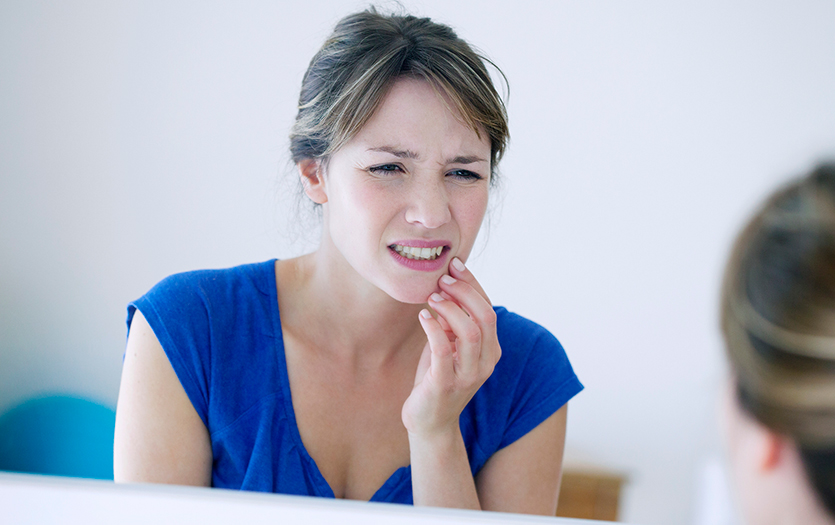
Polycystic ovary syndrome (PCOS) is a common condition that affects a woman’s hormones and causes irregular menstrual periods, excess hair growth, acne, infertility and more. According to the Centers for Disease Control and Prevention (CDC), PCOS affects 6–12% of women of reproductive age in the U.S., which amounts to as many as 5 million women. Thankfully, home treatment can help you manage your symptoms and make life with PCOS more comfortable. Here are some ways you can care for yourself if you suffer from this condition.
Eat a balanced diet.
For women with PCOS, eating a variety of healthy foods can help manage symptoms and provide more energy throughout the day. A diet that includes lots of fruits, vegetables, whole grains and low-fat dairy products will help your body meet its nutritional needs, satisfy your hunger and decrease your cravings. It’s also a good idea to limit processed foods, hydrogenated and trans fats, and sodium.
Women with PCOS are often insulin-resistant, making them more at-risk for developing type 2 diabetes. If you suffer from PCOS and diabetes, you may want to meet with a registered dietitian who has special knowledge about your health conditions and the diet that may be beneficial for you.
Make physical activity a regular part of your life.
Finding time to move your body is one step you can take to living a healthy life with PCOS. That’s because regular exercise can help with insulin resistance and reduce your chance of developing serious health conditions such as diabetes and heart disease, which are two concerns for those with PCOS.
It’s recommended that women with PCOS exercise for at least 30 minutes a day, five days a week. However, it’s important that you choose fitness activities that are right for you and your body. Walking, especially with a buddy, is a great place to start because it’s accessible and doable for almost everyone. Whatever you choose, be sure to stick with it and make it a routine.
Maintain a healthy weight.
PCOS can cause many women to gain weight. As a result, those with PCOS are at a higher risk of developing diabetes, heart disease, high blood pressure, sleep apnea and other weight-related conditions. Women with a healthy body weight are often better able to manage their PCOS symptoms, such as acne and menstrual issues, and are less likely to develop serious health conditions in the future.
Because a “healthy” weight is different for every woman, you should strive to maintain a weight that makes you feel good about yourself and allows you to have energy for work and play. If you need to lose weight, talk with your healthcare provider so they can get a general picture of your health and ways they may be able to help.
If you smoke, think about quitting.
Smoking is detrimental to every person’s health, whether they have PCOS or not. In addition to the many serious long-term health effects smoking can have on someone’s body, it is especially damaging for those with PCOS and can make your symptoms worse, including chronic inflammation, acne, facial hair growth, cardiovascular disease, high blood pressure and cholesterol levels, infertility, weight issues and more.
If you’re a smoker, talk with your healthcare provider about how they may be able to help you quit the habit and get on the path to better health.
Care for your skin.
Acne is often directly related to your hormones, which is why those who suffer from PCOS may also develop acne. While having acne doesn’t affect your physical health, it can be embarrassing, frustrating and even painful.
Thankfully, there are many different treatments that may help your acne, including nonprescription and prescription medications that you either apply topically to your skin or take orally by mouth. You may also notice an improvement in your acne after using estrogen-progestin hormone pills. Your healthcare provider or dermatologist can help you develop a treatment plan to get your skin issues under control.
Remove or treat unwanted hair.
Unwanted facial hair is a common symptom for women with PCOS. That’s because your high androgen levels can also cause excess hair growth. For many women, this issue can affect their mental health and lead to self-esteem issues. If you want to remove your facial hair, some methods you can try include:
- Laser hair removal, in which the hair follicle is destroyed by a laser beam
- Electrolysis, in which your hair is permanently removed by electric current applied to the hair root
- Depilatories, which are chemical hair removal products applied to the skin
- Waxing
- Shaving
- Tweezing
- Bleaching
Hair removal methods differ in cost and long-term effectiveness. Before trying one, ask your doctor about risks of infection and scarring.
For questions about PCOS or tips for managing your symptoms, reach out to the PPG — OB/GYN team for help.
Copyrighted material adapted with permission from Healthwise, Incorporated. This information does not replace the advice of a doctor.


